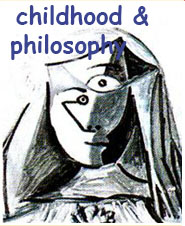childhoods: voices from diversity
DOI:
https://doi.org/10.12957/childphilo.2018.30588Keywords:
inclusion, communication, philosophy, childhoodAbstract
The article presents the advances, reflections and theoretical-methodological positions ofthe Project "Voices and Thoughts: communication from diversity" (SGI 2195, UPTC,Tunja, Boyacá – Colombia). It contains an introduction that corresponds to the reflectionon the seventh-peace process that was experienced in the Colombian context. It displaysthe historical moment of the emergence of the communication wokshops in schools as aperiod and space of hope, as part of the National Program "Colombia Workshop SchoolsTools of Peace". The following sections manifest positions of decentralization built after aweek of meeting with young people with diverse abilities at the Koika classroom,representing a time of contextualization which was vital for the learning of theresearchers. First, in relation to communication difficulties, as it was considered that theseyoung people did not have communication skills. However, from the first encounter itwas clear that the disability was not theirs, but ours and the world’s to understanddifferent communication possibilities. Here the construction of intersubjective relations iscontemplated, regarding the difference as a potential and the look of strangeness, which istorn between its freedom and the desire for integration. The second decentering has to dowith the formative intention to "build their future". In front of this, the research assumes aposition of resignation, that is to say, there are no objectives related to promoting itsdevelopment, nor stimulating skills, because it is not intended to fulfill an educationalfunction. The only intention is to live dialogical experiences that impact on the present.The third decentering is to understand the meeting of diversities without external signsthat ensure cognitive differences as a disadvantage or impossibility. The researchers avoidknowing the psychological diagnoses of the participating group, since it is not consideredvital to the development of the project. By avoiding a perspective of “naturalization of thenormality”, the focus shifts to the valuing and the power of conversation as the mainexpression of human singularity.Downloads
Download data is not yet available.
Downloads
Published
2017-12-19
Issue
Section
dossier




